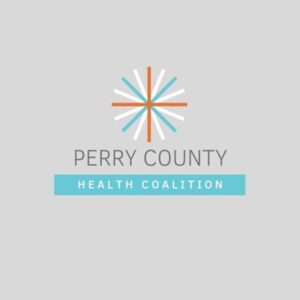
The Partnership for Better Health received an overwhelming response from community donors during this year’s Match Madness Campaign. In total, 2,663 donations totaling $974,321 were received during the month of March to benefit 58 local nonprofit organizations.
The 2024 campaign will bring more than $1.1 million into our community, with the additional $150,000 in matching funds provided by the Partnership for Better Health with the support of Josiah W. and Bessie H. Kline Foundation, WellSpan Health, M&T Bank, Penn State Health and Highmark, and donations from Partnership board, staff, and volunteers.
“With the support of our matching funds partners and over 2,600 donations from individuals and organizations throughout the region, these funds will have immediate impact for the participating nonprofit organizations”, shared Interim Executive Director, Carol Thornton. “Donors have shown their support for the missions of their favorite nonprofits with these unrestricted donations. These nonprofits can now use the funds as they see fit and where grant dollars typically fall short.”
Since 2016, the annual Match Madness program has raised over $5 million dollars to support small and mid-sized nonprofits in our community. The purpose of the annual Match Madness campaign is to increase the fundraising capacity and strengthen financial stability of our local nonprofits, many of which operate with all volunteers or limited staff.
One hundred percent of donations from the 2024 campaign will be used as flexible funding by 58 local nonprofits. These funds support core operations of these organizations, who work across sectors to build community, support individual wellness, and improve community health.
Top five fundraisers of the 2024 Match Madness campaign were Project SHARE of Carlisle, NLC LifeWorks, Community CARES, The Salvation Army, and Bosler Memorial Library, each raising over $50,000 through generous donations from the community.
Excluding the top five fundraisers, organizations raised an average of $8,525 through donations, a 10 percent increase from 2023.
“We are amazed by the generosity of our community. The Partnership would like to express a heartfelt thank you to the many donors and local organizations who came together to support our local nonprofits through this campaign,” shares Antonia Price, Director of Communications and Development.
A small but significant difference this year, the Partnership for Better Health provided a 1:1 match up to $1,500 for each participating organization, a goal reached by 53 nonprofits. Remaining funds from the $150,000 matching pool were distributed proportionally based on the amount raised by each organization.
On April 24, representatives from the 58 participating nonprofits gathered to celebrate Match Madness. The room was full of joyful camaraderie as participants celebrated individual successes and the collective impact of the campaign.
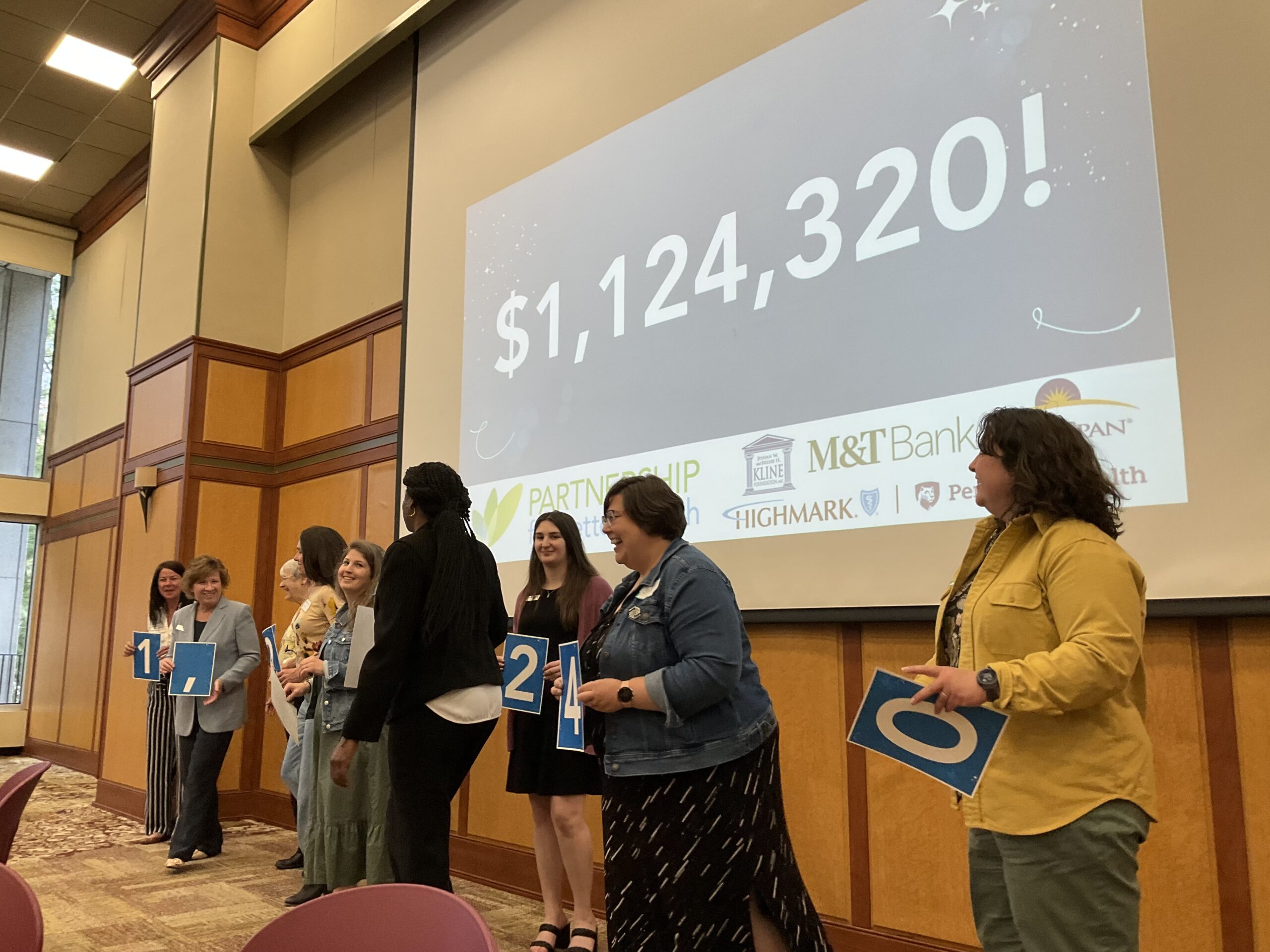
To participate in the 2024 Match Madness campaign, nonprofits must have received a grant from the Partnership within the past three fiscal years and have operating budgets of less than $5 million.
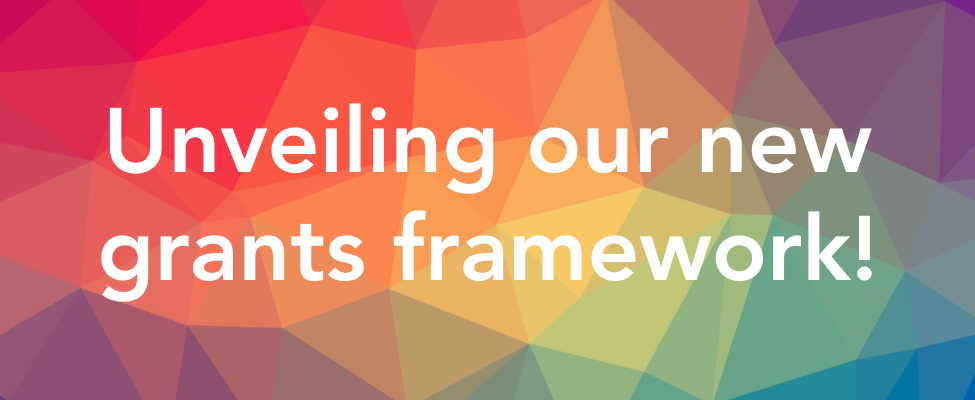
 The Partnership for Better Health seeks an Executive Director to lead the organization.
The Partnership for Better Health seeks an Executive Director to lead the organization.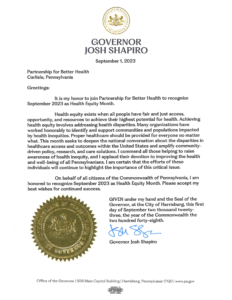
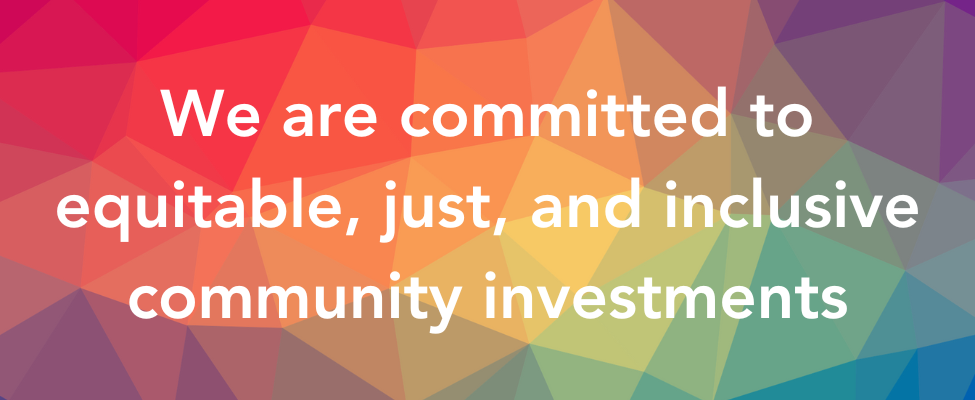
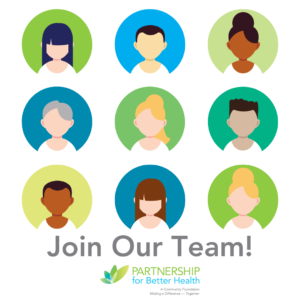 The Partnership for Better Health is seeking a Finance Director to direct all day-to-day aspects of the foundation’s accounting, investment, financial management and HR benefit administration systems. The director will develop and implement financial policy, accounting and reporting through a comprehensive fiscal plan and budget. Reporting to the Executive Director, the director works closely with the board and staff to ensure high levels of accountability, excellence and transparency in all aspects of financial, fundraising and Human Resource benefit management, in pursuit of the foundation’s mission. The director formulates, calculates and provides documentation to continually monitor current financial activities and create forward thinking strategies that ensure the operations of the organization are maintained into the future.
The Partnership for Better Health is seeking a Finance Director to direct all day-to-day aspects of the foundation’s accounting, investment, financial management and HR benefit administration systems. The director will develop and implement financial policy, accounting and reporting through a comprehensive fiscal plan and budget. Reporting to the Executive Director, the director works closely with the board and staff to ensure high levels of accountability, excellence and transparency in all aspects of financial, fundraising and Human Resource benefit management, in pursuit of the foundation’s mission. The director formulates, calculates and provides documentation to continually monitor current financial activities and create forward thinking strategies that ensure the operations of the organization are maintained into the future.
